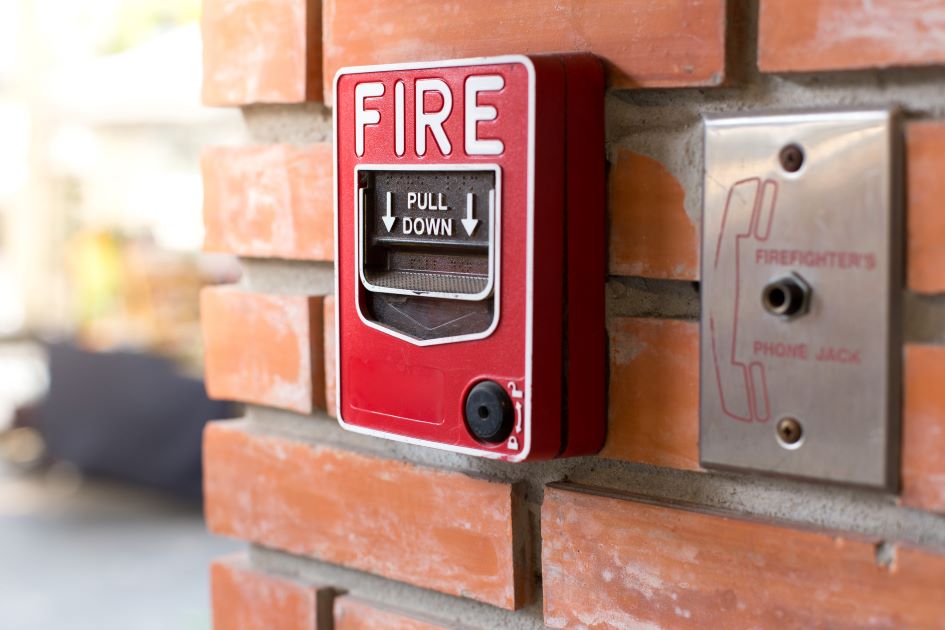Sound the Alarm: Local Ordinance Limiting Fire Alarm Transmission Methods Sparks Legal Battle

The Seventh Circuit just affirmed summary judgment for the Village of Schaumburg in a constitutional case brought by fire alarm companies. Alarm Detection Systems Inc v. Village of Schaumburg, No. 24-3163 (7th Cir. July 22, 2025). The National Fire Protection Association (“NFPA”) authorizes two primary modes of signal transmission for fire alarms: (1) the supervising station model; and (2) the direct connect model. In the former model, if a fire alarm is triggered, the signal is routed directly to the private alarm company’s station and then forwarded to the local emergency dispatcher via a phone call. In the latter model, the fire alarm is routed directly to the local dispatcher. At the suggestion of their fire chief, the Village of Schaumberg enacted an ordinance requiring all covered properties to transition to the direct connect model. This decision was made to: (1) decrease response time by eliminating the middleman in emergency fire communications; (2) to allow the local fire dispatcher to know what alarms were not functioning since they would receive the “trouble” signal directly; and (3) to help Village finances as an alarm receiver company with an exclusive contract with the local dispatch center had promised to credit the Village, through the dispatch center, roughly $300,000 a year.
Local fire alarm companies filed suit alleging that the ordinance violated their rights under the Contracts Clause of the United States and tortiously interfered with their business and economic advantage under Illinois law. However, the alarm companies could not provide any substantial evidence to show that people breached their contracts due to the ordinance. The companies provided testimony that people breached contracts due to the ordinance, but the Seventh Circuit Court of Appeals said that the Plaintiffs lacked the personal knowledge to make such a claim. They had no basis to know why people had breached contracts and provided no concrete details as to any contracts that may have been breached. The alarm companies also provided proof that customers chose not to renew their contracts due to the ordinance, but such a decision was clearly allowed by the contract and therefore could not be considered interference. In dispensing of the tortious interference with economic advantage claim, the Court found that the history of the ordinance – the desire to increase citizen safety and Village finances – precluded a finding that the Village’s purpose was to intentionally interfere with the alarm companies’ business. With that, the Plaintiffs’ claims were up in smoke.
In many lawsuits covering local ordinances, there is a discussion of the “how” and the “why” of the law. For the tortious interference claim, the history of the ordinance allowed the Village to win on summary judgment: it could show the three purposes proposed by the fire chief. Similarly, if the Plaintiffs had been able to show that someone breached their contract because of the ordinance, the next step would have been to determine if the law was drawn appropriately and reasonably to advance a significant and legitimate public purpose. Those same three purposes would have been analyzed by the Court. With this in mind, municipalities should be proactive in creating a record that supports the implementation of their new laws. That record can be invaluable for defending any number of suits brought against the municipality. Further, when drafting ordinances, municipalities should aim to incorporate language that allows for pre-existing contracts to come to their natural conclusion.
For more information about this article, please contact Tressler Attorney Alex Myers at amyers@tresslerllp.com.
About the Author

Alexander (Alex) Myers serves as an associate in Tressler’s Local Government and Litigation Practice Groups. His practice is primarily focused on civil rights litigation, tort litigation, employment litigation and counseling, as well as matters arising from section 1983 and police misconduct. Click here to read Alex’s full attorney bio.
